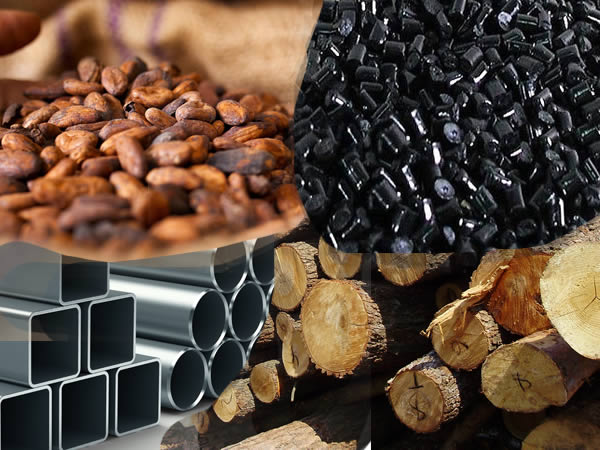Over the last three years, manufacturers have invested a substantial N7.9tn in importing raw materials, as revealed by a newspaper investigation.
This surge in raw material imports expense is attributed by manufacturers to their reliance on the parallel market for foreign exchange, where high rates prevail due to the scarcity of FX in the official market.

An analysis of the foreign trade reports of the National Bureau of Statistics also showed Nigeria was only able to export raw materials worth N1.77tn during the period, leaving a balance of trade deficit of 6.1tn.
A breakdown of the data showed that in the second quarter of 2020, manufacturers imported raw materials worth N570.6bn. The figure increased to N710.2bn in the third quarter of the same year before increasing further to N715.7bn in Q4.
Further breakdown of the data showed that in 2021, raw materials imports by manufacturers was N2.9tn. It slowed to N2.4tn in 2022, while N555.4bn worth of raw materials was imported in the first quarter of 2023.
The major raw materials imported during this time included cane sugar from Brazil, milk preparations from Ireland, mixtures of odiferous substances from Ireland and Swaziland, and lubricating oils from The Netherlands.
According to the Manufacturers Association of Nigeria Bi-Annual economic report, the manufacturing sector’s local raw materials sourcing averaged 52.8 per cent as against 51.5 per cent recorded in 2021.
MAN said the increase in local raw materials utilization was due to increased difficulty in sourcing forex, which compelled manufacturers to look more inward for raw materials notwithstanding the associated huge cost.
The report partly read, “It is therefore important for the government to re-evaluate its role in local development and production of raw materials in terms of funding.
“For instance, the development and production of Active Pharmaceutical Ingredients has continuously eluded due to limited funding of the Raw Materials Research and Development Council by the Government.
“The absence of local production of APIs has been having dire consequences on pharmaceutical production, particularly in the current situation of acute shortage of forex.”
Motorcycle ban hits traders, imports crash by 36%
Speaking exclusively with The PUNCH, The Director-General of MAN, Segun Ajayi-Kadir, said addressing the forex volatility was vital to manufacturing production.
According to him, the forex shortage being faced by manufacturers translates to high cost of imported inputs and by extension high cost of production.
This, he said, would result in higher prices of goods.
He said, “But the reality is that the government lacks the needed forex to cover the demand in the economy, including that of the sector. Crude oil proceeds are the major source of forex inflow into the country, and Nigeria has not even been able to meet the OPEC export quota for the country.
“The situation is that the government has limited forex available for the economy and the recent floating of the rate of exchange has complicated the supply side constraints.
In his recommendation, Ajayi-Kadir urged the government to prescribe a definite rate for calculating the import duty for production inputs, such as raw materials, machines and spares that are not available locally.
A former president of MAN, Mansur Ahmed, while speaking at the Annual General Meeting of the Cross River/Akwa Ibom State branch of the association, had said that manufacturers could only source 5 per cent of their forex needs from the banks.
On his part, the Deputy President of the Lagos Chamber of Commerce and Industry, Gabriel Idahosa, cited the failure of Nigeria’s import substitution strategy as the reason for the country over-reliant on imported raw materials.
He added that importation of raw materials for production purposes would not be particularly injurious to the local economy if Nigeria was able to equally export raw materials to other countries to make up for the forex spent on imports.
He said, “A lot of the companies are just involved in importing their raw materials. In some areas, we cannot do backward integration because we do not have the raw materials or the technology to do it.
“If you are manufacturing a car in Nigeria, you cannot backward integrate to start building engines or even producing tires. You more or less still import most of the components and just put them together.”







